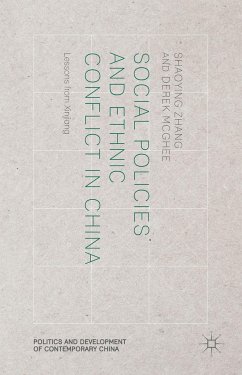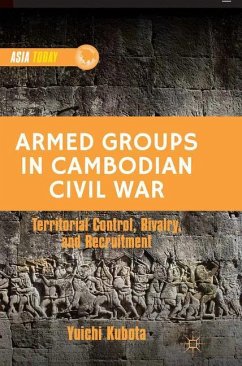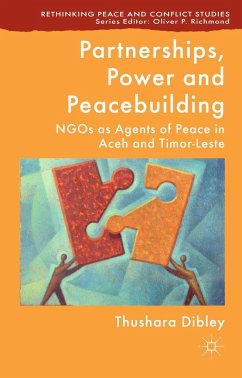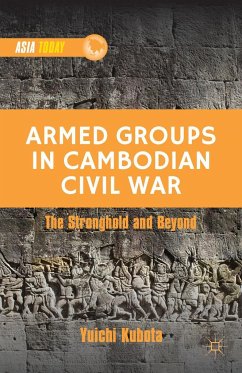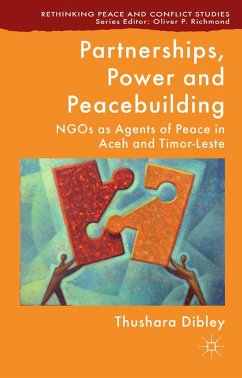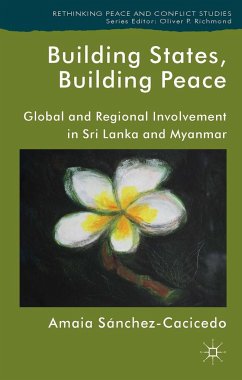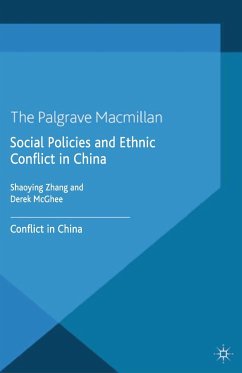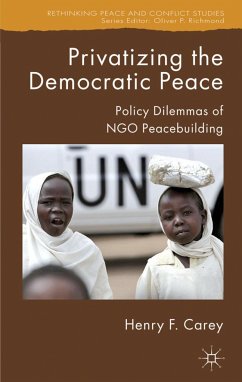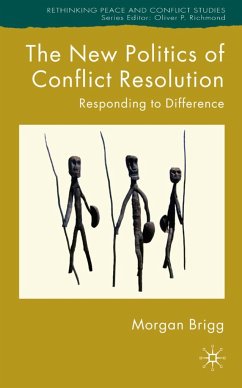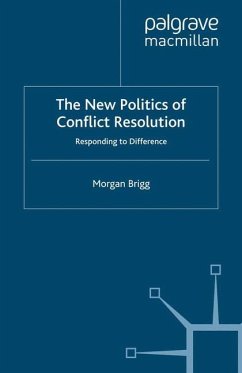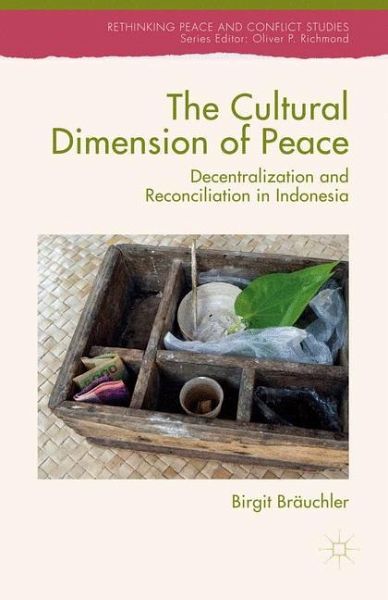
Birgit Bräuchler
Broschiertes Buch
The Cultural Dimension of Peace
Decentralization and Reconciliation in Indonesia
Versandkostenfrei!
Versandfertig in 6-10 Tagen
Weitere Ausgaben:

PAYBACK Punkte
19 °P sammeln!





This study outlines the emerging cultural turn in Peace Studies and provides a critical understanding of the cultural dimension of reconciliation. Taking an anthropological view on decentralization and peacebuilding in Indonesia, it sets new standards for an interdisciplinary research field.
Birgit Bräuchler is Senior Lecturer for Anthropology at the School of Social Sciences, Monash University, Melbourne, Australia.
Produktdetails
- Rethinking Peace and Conflict Studies
- Verlag: Palgrave Macmillan / Palgrave Macmillan UK / Springer Palgrave Macmillan
- Artikelnr. des Verlages: 978-1-349-57475-9
- 1st ed. 2015
- Seitenzahl: 284
- Erscheinungstermin: 5. Mai 2017
- Englisch
- Abmessung: 216mm x 140mm x 16mm
- Gewicht: 380g
- ISBN-13: 9781349574759
- ISBN-10: 1349574759
- Artikelnr.: 45081582
Herstellerkennzeichnung
Macmillan Education
Tiergartenstr. 17
69121 Heidelberg
ProductSafety@springernature.com
"Birgit Bräuchler has written an excellent monograph on the potential of culture for reconciliation ... . The book covers new ground in the ongoing debate over scope conditions for sustainable peacebuilding. It is a rich source of material for scholars and practitioners seeking to understand how the revival of cultural traditions can foster a normalisation of social relations at an everyday level of interaction in post-conflict settings." (Sabine Mannitz, Peacebuilding, May, 2017)
"Bräuchler's nuanced and sophisticated analysis provides new insights into the evolving relations between Islam, Christianity, and adat in contemporary postconflict Moluccan society. She explains the success of the revival of adat in peace and reconciliation processes but clearly identifies the limitations of this approach in a democratised and decentralised Indonesia." (Richard Chauvel, Bulletin of Indonesian Economic Studies, 2017)
"This book provides the reader with straightforward narratives and analyses that will appeal to both specialists and a wider audience who wish to investigate decentralization, democratization, local politics, and peacebuilding in post-New Order Indonesia and will attract both specialists and a broader audience within anthropology, peace and conflict studies, and other social sciences. ... this book will deservedly pave the way for a deeper and more nuanced understanding of a new anthropology of peace." (Yanwar Pribadi, Aseasuk News, Issue 60, 2016)
"Bräuchler's nuanced and sophisticated analysis provides new insights into the evolving relations between Islam, Christianity, and adat in contemporary postconflict Moluccan society. She explains the success of the revival of adat in peace and reconciliation processes but clearly identifies the limitations of this approach in a democratised and decentralised Indonesia." (Richard Chauvel, Bulletin of Indonesian Economic Studies, 2017)
"This book provides the reader with straightforward narratives and analyses that will appeal to both specialists and a wider audience who wish to investigate decentralization, democratization, local politics, and peacebuilding in post-New Order Indonesia and will attract both specialists and a broader audience within anthropology, peace and conflict studies, and other social sciences. ... this book will deservedly pave the way for a deeper and more nuanced understanding of a new anthropology of peace." (Yanwar Pribadi, Aseasuk News, Issue 60, 2016)
Für dieses Produkt wurde noch keine Bewertung abgegeben. Wir würden uns sehr freuen, wenn du die erste Bewertung schreibst!
Eine Bewertung schreiben
Eine Bewertung schreiben
Andere Kunden interessierten sich für


